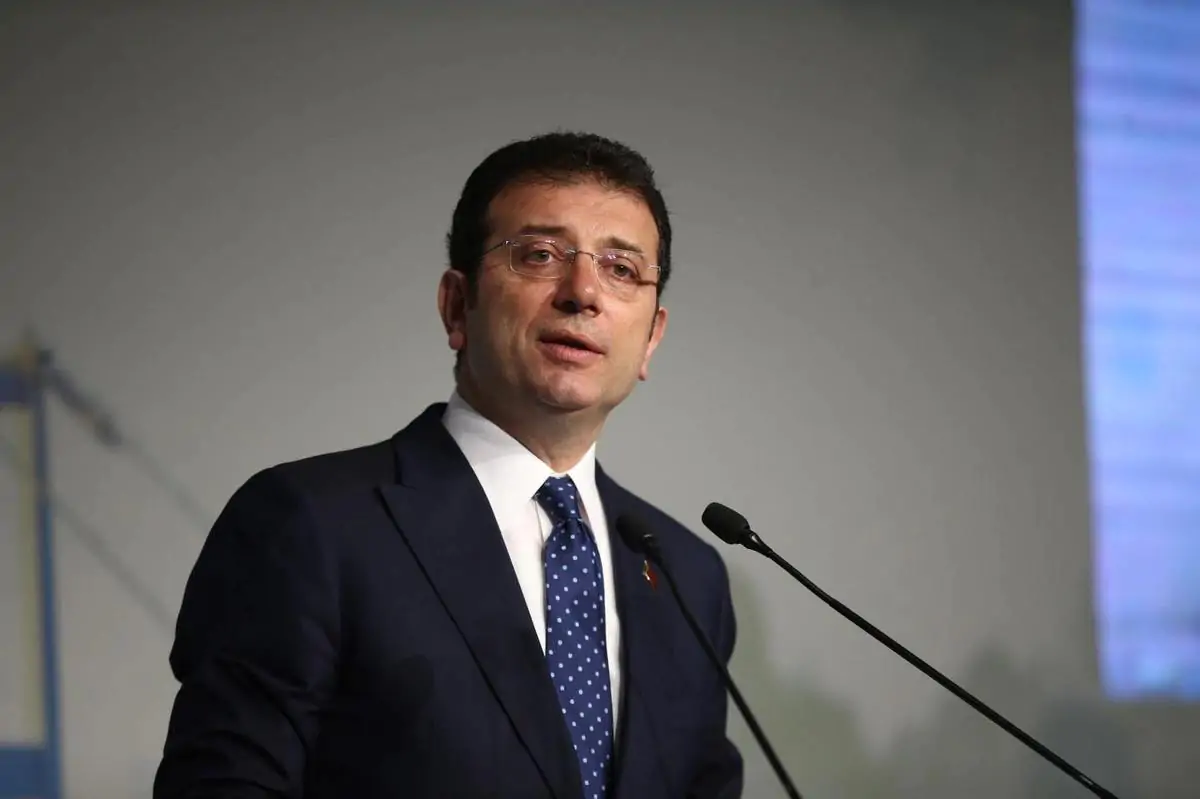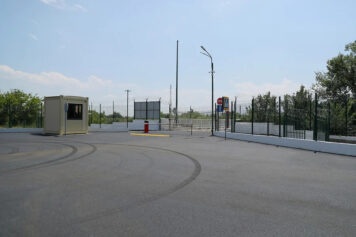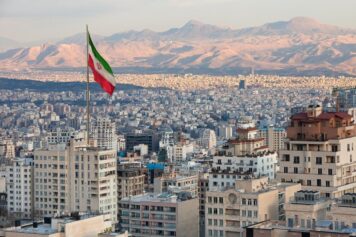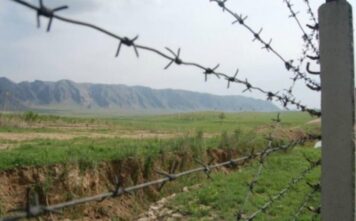What is the connection between Imamoğlu’s arrest and the Kurdish issue
22.05
2025
It is important to discuss what connection exists between Imamoğlu’s arrest and the Kurdish national cause. Previously, Imamoğlu pursued a cautious policy regarding the Kurdish issue, but the timing of his arrest is not coincidental. Recently circulating rumors suggest that Abdullah Öcalan might make a new statement, influencing Turkey’s political elite’s decisions. Many Kurds in Syria, Turkey, and Europe do not believe that Öcalan’s recent declaration about disarming and resolving the Kurdish national cause through political means is genuine. They are convinced that this statement is from MIT (Milli İstihbarat Teşkilatı), Turkey’s national intelligence agency, and they see the attempt to quickly resolve the Kurdish issue as merely an illusion. They believe Erdoğan does not want to lose the votes of Grey Wolves or nationalist parties in parliament.
It appears Erdoğan is trying to use the Kurdistan Workers’ Party (PKK) and Öcalan as leverage to neutralize his opponents. The packaging of this plan is clear: Erdoğan will declare that he has done what no Turkish leader in the last half-century could—solve Turkey’s main threat: terrorism, since the PKK is considered a Kurdish terrorist organization.
Another key question is why Imamoğlu was arrested now. This is a simple political calculation: Erdoğan is trying to prevent the CHP from winning in the upcoming local elections in Istanbul. Moreover, considering Turkey’s worsening economy heading toward collapse, Erdoğan will likely have to take tough measures to maintain power amid economic decline. Imamoğlu is currently the most popular opposition figure. Despite the weakening of the opposition (such as Kilicdaroglu’s defeat in 2023), Imamoğlu retains popularity and is a potential opposition presidential candidate in 2028, whom Erdoğan is trying to neutralize through arrest.
Erdoğan is very experienced in such matters. Since the failed military coup attempt in 2016, he has completely eliminated the Gülen movement, or as Turks call it, the Fetullahists—supporters of Fetullah Gülen, the movement’s founder. Imamoğlu is considered a new enemy for Erdoğan, a new Fetullah Gülen who threatens not with religious ideology but with a democratic agenda. Imamoğlu’s arrest is a pretext to hinder his political influence and create space for Erdoğan or those under his patronage—namely, current Foreign Minister Hakan Fidan, Erdoğan’s son Bilal Erdoğan, and the founder of Bayraktar, Seljuk Bayraktar. We believe that removing Imamoğlu will open the way for weaker opposition candidates in the 2028 elections.
The next question is whether Russia and the U.S. will try to remove Erdoğan, or will we see a replay of 2016, when Russia’s president personally kept Erdoğan in power and prevented his fall. Today, the U.S. is dissatisfied with Erdoğan’s double game with regard to NATO, Ukraine and Syria; Russia uses him but does not trust him. Washington and Brussels prefer a more predictable Turkish leader. This stance largely depends on the new security architecture in Syria and the issue of Artsakh. Erdoğan is well aware that the approaches of the U.S. and Russia regarding Syria and the Kurds are, to put it mildly, opposed to Ankara’s official stance. Turkey is deeply worried that the U.S. continues supporting Kurdish forces in Syria. Russia also tries to resolve the Kurdish issue without prioritizing Turkey’s interests. Erdoğan is working to prevent foreign interference and strengthen his position for future conflicts.
What is the connection between Imamoğlu’s arrest, the Kurdish issue, Öcalan’s call, and Turkish opposition relations? Here are some points:
In the 2019 Istanbul elections, Imamoğlu won partly thanks to Kurdish votes, and Turkey’s nationalist segment views him as “elected with PKK support.”
Erdoğan understands that the PKK might seek new political maneuvers.
Erdoğan’s political logic involves constantly portraying an enemy to conquer at any cost. After eliminating the Gülen movement, the next target is the Kurdish issue. Erdoğan believes that if the Kurdish issue is resolved, he will need to create a new “enemy” and forge a new image of an adversary—this time, the so-called democratic opposition led by Imamoğlu.
In all of this, it must be said that we, as a state and a nation, are interested in several key issues, particularly Erdoğan’s political future in the context of the U․S․-Russia conflict.
The U․S․ and Erdoğan are unstable partners. The U․S․ does not trust Erdoğan, but it cannot get rid of him.
Turkey is a NATO member, but…
It is working with Russia on issues related to nuclear power plants, S-400 missile systems, and Syria.
The main concern for the United States is Turkey’s unpredictable political behavior.
U.S. support for the Syrian Kurds increases Erdoğan’s worries.
Regarding Russia-Turkey relations, Moscow may not want to fully weaken Erdoğan but could exploit his internal problems to push for more favorable deals.
Russia and Erdoğan: Tactical allies or adversaries?
They are opponents because:
– Turkey continues to supply weapons to Ukraine.
– Despite cooperation, Russia does not trust Turkey on Syria.
– Putin knows Erdoğan is a potentially unstable partner.
– Erdoğan has strengthened his position within NATO but keeps Russian cards close.
– Turkey is a rival to Russia in Syria, Ukraine, Central Asia, and the South Caucasus.
– A more passive, pro-Western leader like Imamoğlu could make Turkey weaker, which would benefit Moscow.
They are temporary allies because:
– Despite disagreements, Moscow manages to reach agreements with Erdoğan, leveraging his tendency to seek compromises.
– Erdoğan’s tough leadership prevents the growth of pro-Western forces in Turkey, which aligns with Kremlin interests.
– Russia depends on Turkey to bypass Western sanctions (gas, trade, finance, etc.).
What could this all mean for Armenia? How might Turkey’s internal instability affect the prospects of Armenian-Turkish relations?
Erdoğan’s focus is on domestic issues, and Turkey’s relations with Azerbaijan are framed within the Erdoğan-Aliyev agreements. It’s unlikely Turkey will develop any relations with Armenia until Armenia de facto capitulates to Azerbaijan. If the Kurdish issue remains unresolved, Turkey will not look for new pretexts to launch a démarche against Armenia. It will accuse Armenia of supporting PKK and Kurdish militants, and as it did in Syria, Iraq, and Artsakh, it may carry out what is called a counter-terrorism operation without consulting anyone.
Could this situation pose a threat to Armenia? If Erdoğan adopts a double nationalist approach, he might escalate rhetoric against Armenia and the Armenian people. However, we believe that Turkey’s internal political and economic decline will push Erdoğan toward more rational policies.
Thus, the arrest of Imamoğlu reflects deeper issues beyond merely neutralizing an opposition figure. Erdoğan aims to cleanse the political landscape, eliminate potential rivals, and maintain control after 2028. The U.S. and Russia have different objectives regarding Turkey, but both seek to weaken Erdoğan’s government. For Armenia, this is a clear signal to prepare for all possible developments in Turkish politics.
One should be ready for the following scenario: If the West, particularly the U.S., uses internal Turkish conflicts to pressure Ankara into opening the closed border with Yerevan and signing diplomatic normalization agreements, Turkey might present this as a constructive gesture to buy time. Opening its own closed border with Armenia could be portrayed by Erdoğan as a favor to Armenia and the world. At the same time, it’s important to understand that changes in Erdoğan-İmamoğlu pairings will not fundamentally alter Turkey’s stance toward Armenians and Armenia. Turkey’s official policy toward Armenians and Armenia has remained consistent regardless of leadership changes. Only Erdoğan’s increased pro-Western stance might make Turkey’s policies more predictable, as Russia-Turkey relations could undergo some changes (notably, Imamoğlu was recently awarded the honorary citizenship of Paris).
Now, let us come to the most pressing question: Could Armenia currently find itself on Erdoğan’s list of primary adversaries?
Possible scenarios include:
– If Erdoğan worsens relations with the West, he might exploit Armenia’s situation, claiming Turkey is “alone” and needs to take tough measures.
– If Azerbaijan becomes involved in new provocations, Turkey could continue supporting it but with new rhetoric against Armenia.
– If the situation regarding the Kurdish issues escalates, Erdoğan could again accuse Armenia of supporting terrorists (similar to accusations against Syrian Kurds).
We believe that at this moment, there is no immediate direct threat to Armenia. However, Turkey could use Armenia at any time as an external “enemy” figure to address internal issues.
Furthermore, Turkey may try to further integrate Azerbaijan into its military-political projects, similar to what was done with the Organization of Turkic States. At minimum, Turkey could conduct several additional military exercises near Armenia’s borders annually, though one should not overestimate Turkey’s strength or underestimate Iran’s and Russia’s roles in the South Caucasus. The latter two are likely to respond strongly to curb Turkey’s ambitions, based on strategic principles like “OCULUM PRO OCULO ET DENTEM PRO DENTE” — “an eye for an eye, and a tooth for a tooth.”





